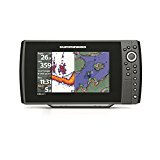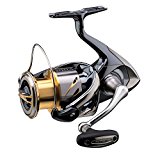Butterfly Peacock Bass Night Fishing
Butterfly Peacock Bass love sunshine. It’s essential for their growth, feeding and for their reproductive cycle. This is because it heats their eggs and helps them grow and also increases their metabolism. When the sun is out at its highest in the sky, Peacocks are most active and very hungry. When the temperature drops significantly it can kill them off.
In fact if the water temperature hit 60°F/18°C, the Butterfly will die off.
Don’t waste your time: Night Fishing is not effective for Butterfly Peacock Bass
When the sky is overcast and the temperature is low, they become lethargic and difficult to entice. Night fishing for Peacocks is a waste of time because they sleep during the night in the shallows. Therefore there are no techniques for catching them at night unless you plan on waking them up and shinning a heavy watt floodlight on them.
Not Family After All
Many anglers new to the Peacock Bass find it hard to believe that these fish are idle at night and that they can’t be persuaded to strike at a lure or popular bait. But these are not like other bass.
The Peacock Bass come from a completely different family so it’s not surprising that they don’t have a lot in common with their fellow freshwater bass.
Not only are they from a different family, but the name bass doesn’t even apply. The only reason they were given the name bass is due to the fact that when they were introduced into Florida it was thought that their Portuguese name ‘pavon’ wouldn’t sell.
Peacocks are Sunbathers
All of the bass species we cover here at Bassfishing-gurus.com keep hidden away during the day and out of the sunlight. They have fixed irises and take several minutes to adjust to the dark after the sun sets. This is when they come alive and are more free to roam in the open.
The Peacocks on the other hand are quite the opposite preferring the heat of the sun and avoiding any activity at night. The preference for sunlight is more than something that they enjoy, it’s part of their survival.
The Peacock bass species are tropical fish and cannot take the cold temperatures that all other North American fish tolerate.
Most bass head for colder temperatures in the winter, tolerating temperatures as cold as 45°F7°C degrees. And while lethargic and slow feeders at these temperatures, they survive the winter, even with ice cover.
The peacock bass on the other hand will die if the temperature drops much before 65°F/18°C degrees.


